#seniorcatcare
Explore tagged Tumblr posts
Text
THE BEST CARE TIPS FOR SENIOR CATS
Cats, like humans, undergo physical and behavioral changes as they age, requiring special care to maintain their well-being and quality of life.
Understanding the unique characteristics of senior cats is crucial for providing them with the appropriate support and attention during this stage of their lives.
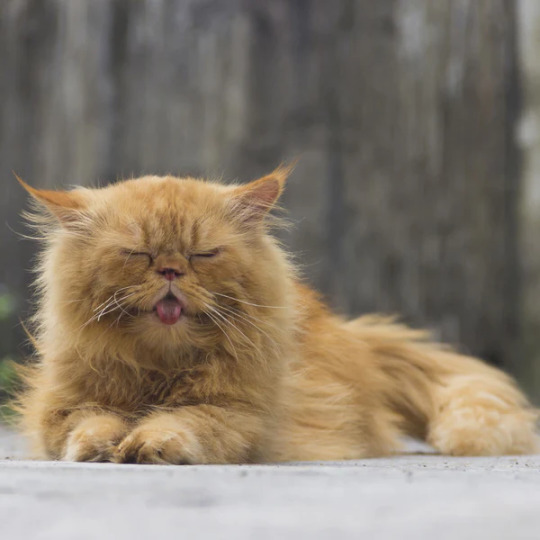
UNDERSTANDING SENIOR CATS
Senior cats exhibit distinct physical and behavioral traits indicative of their age. These characteristics offer insights into their evolving needs and behaviors, guiding us in providing suitable care and attention as they enter their golden years.
PHYSICAL CHANGES IN SENIOR CATS
As cats age, they experience various physical changes that necessitate special attention and care, including the need for a cozy and warm bed.
Joint stiffness, reduced mobility, weight fluctuations, alterations in coat texture or color, and increased vulnerability to health issues are common among senior cats.
Addressing these changes through tailored care routines is essential to their overall well-being and comfort.
UNDERSTANDING SENIOR CATS
Senior cats exhibit distinct physical and behavioral traits indicative of their age. These characteristics offer insights into their evolving needs and behaviors, guiding us in providing suitable care and attention as they enter their golden years.
PHYSICAL CHANGES IN SENIOR CATS
As cats age, they experience various physical changes that necessitate special attention and care, including the need for a cozy and warm bed.
Joint stiffness, reduced mobility, weight fluctuations, alterations in coat texture or color, and increased vulnerability to health issues are common among senior cats.
Addressing these changes through tailored care routines is essential to their overall well-being and comfort.

BEHAVIORAL CHANGES IN SENIOR CATS
Behavioral shifts in senior cats are noticeable as they age. Decreased activity levels, heightened anxiety, sleep disturbances, and alterations in social interactions are typical manifestations.
Understanding and accommodating these changes with patience and support contribute to maintaining their mental and emotional health in their senior years.
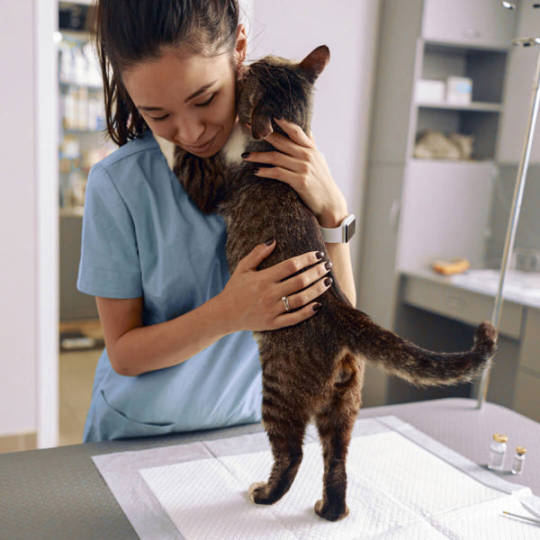
CARING FOR SENIOR CATS
Providing comprehensive care for senior cats involves addressing their evolving needs through various aspects of daily life.
Regular veterinary check-ups, balanced nutrition tailored to their age and health status, adequate exercise suited to their abilities, and mental stimulation are key components of their care regimen.
By prioritizing their well-being and adjusting care practices accordingly, senior cats can thrive in their later years.

HEALTHCARE AND VETERINARY VISITS FOR SENIOR CATS
Ensuring the health and well-being of senior cats requires regular healthcare and veterinary visits. Here are essential considerations to keep in mind:
Routine Check-ups: Schedule regular visits with your veterinarian to monitor your senior cat's overall health and address any emerging issues promptly.
Vaccinations: Stay current with your cat's vaccinations to safeguard against common diseases and illnesses that can affect senior felines.
Dental Care: Regular dental check-ups and cleanings are vital to maintain oral hygiene and prevent dental diseases in senior cats.
Medication and Treatments: Follow your veterinarian's recommendations for any necessary treatments or medications to manage existing health conditions effectively.
Specialist Consultations: If your senior cat has specific health concerns, consult with specialists such as veterinary dentists or ophthalmologists for specialized care tailored to their needs.

DIET AND NUTRITION
Proper diet and nutrition play a crucial role in the well-being of senior cats. Here are important dietary considerations:
Consultation with a Veterinarian: Work with your veterinarian to determine a balanced and age-appropriate diet for your senior cat.
High-Quality Protein: Incorporate high-quality protein sources into your cat's diet to support muscle maintenance, repair, and overall health.
Fruits and Vegetables: Include fruits and vegetables in your cat's diet to provide essential vitamins, minerals, and antioxidants, contributing to a well-rounded nutritional plan.
Supplements: Consider adding supplements like glucosamine and omega-3 fatty acids to support joint health and reduce inflammation, enhancing your senior cat's overall well-being.
Weight Monitoring: Monitor your cat's weight and adjust portion sizes accordingly to prevent obesity and related health issues, ensuring a healthy diet and nutrition.
Access to Fresh Water: Provide access to fresh water at all times to keep your senior cat hydrated and support their overall health and hydration needs.

EXERCISE AND PHYSICAL ACTIVITY
Incorporating regular exercise and physical activity is essential for maintaining the health and vitality of senior cats. Here are key considerations:
Low-Impact Exercise: Choose gentle activities like interactive play or short walks that are easy on your cat's joints to prevent strain or injury.
Regular Play Sessions: Engage your senior cat in regular play sessions to maintain muscle strength, cardiovascular health, and mental stimulation.
Mental Stimulation: Provide interactive toys, training games, and enrichment activities to keep your senior cat's mind active and engaged.
Joint-Friendly Exercises: Incorporate stretching and gentle exercises that promote flexibility and joint health to support your senior cat's overall mobility.
Supervised Playtime: Ensure supervised playtime with appropriate toys and activities that encourage movement and keep your senior cat mentally and physically stimulated.
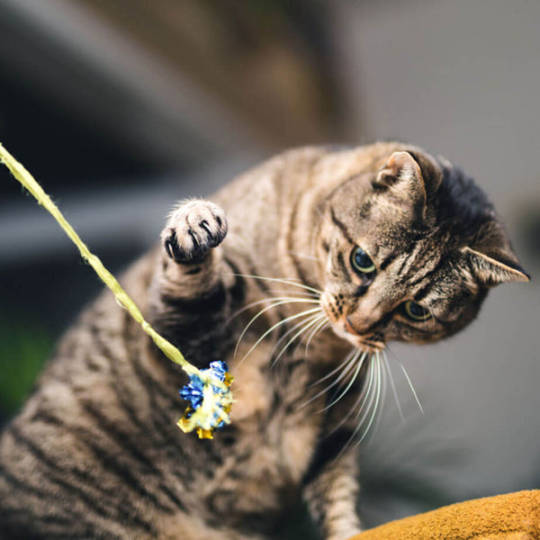
MENTAL STIMULATION AND ENRICHMENT
To provide mental stimulation and enrichment for senior cats, consider the following activities:
Interactive Toys: Provide puzzle toys and interactive games that challenge your cat's problem-solving skills and mental agility.
Training and Tricks: Engage in obedience training and teach new tricks to keep your senior cat's mind sharp and active.
Scent Work: Hide treats or toys around the house to encourage your cat to use their sense of smell and engage in stimulating scent-based activities.
Socialization: Arrange playdates with other friendly cats to stimulate social skills and provide mental and physical exercise for your senior feline companion.
Mental stimulation and enrichment are vital for preventing cognitive decline and promoting overall well-being in senior cats. Incorporating these activities into your cat's daily routine can contribute to a happy and fulfilling life in their golden years.
COMMON HEALTH ISSUES IN SENIOR CATS
Senior cats are susceptible to specific health concerns that require vigilant monitoring and management.
From dental problems and arthritis to sensory impairments and organ-related issues, understanding the signs and symptoms of these conditions is crucial for timely intervention and treatment.
With proactive healthcare and tailored support, senior cats can enjoy a high quality of life despite age-related challenges.
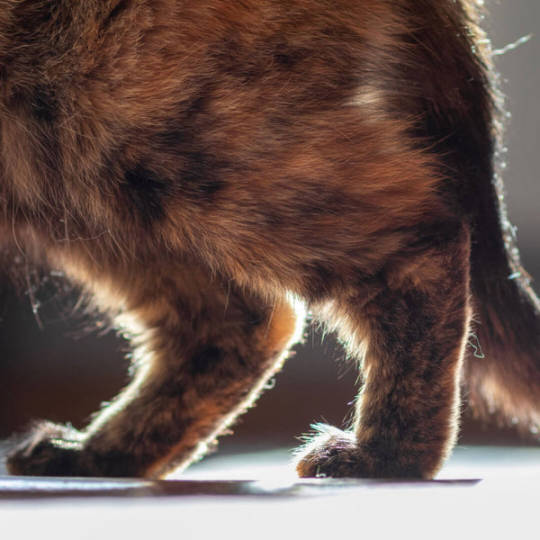
ARTHRITIS AND JOINT ISSUES IN SENIOR CATS
Senior cats are prone to arthritis and joint problems, which can greatly affect their mobility and overall well-being.
Addressing these issues is crucial to ensure their comfort and quality of life. Regular exercise, including gentle movements and low-impact activities, can help maintain joint function and muscle strength in senior cats.
Providing a cozy and supportive sleeping environment, such as orthopedic beds, can also alleviate discomfort associated with arthritis and joint problems.
Consulting with a veterinarian for proper diagnosis, treatment, and management of arthritis and joint issues in senior cats is essential.

DENTAL CONCERNS
Senior cats are also susceptible to dental issues that can cause pain, discomfort, and difficulty eating. It's important to address these dental concerns to ensure the health and happiness of your feline companion.
Regular dental care, such as teeth brushing and providing dental treats or toys, helps prevent plaque and tartar buildup in senior cats.
Scheduling routine dental check-ups with a veterinarian is recommended to identify and treat any dental issues promptly.
Maintaining good dental hygiene is crucial for senior cats to enjoy a comfortable and healthy life in their golden years.

HEARING AND VISION IMPAIRMENT
Hearing and vision impairment are common health issues that can affect senior cats as they age.
Owners should be attentive to these changes and provide appropriate care to accommodate their needs.
Some ways to assist senior cats with hearing and vision impairment include: -Maintaining a consistent environment to minimize confusion and promote a sense of familiarity.-Using verbal and tactile cues to communicate with the cat, such as gentle touches and clear vocal commands.-Ensuring the living space is free from obstacles or hazards that could pose risks to their safety.-Regularly checking the cat's ears and eyes for any signs of impairment or discomfort and seeking veterinary care if necessary.-Providing mental stimulation through interactive toys and activities that engage their other senses.-By understanding and addressing the unique needs of senior cats with hearing and vision impairment, owners can help maintain their quality of life in their senior years.

HEART AND KIDNEY CONCERNS
Senior cats are also more prone to developing heart and kidney problems as they age. Decreased organ efficiency can lead to issues such as heart disease and kidney disease.
It's important for owners to be vigilant and recognize the signs and symptoms of these conditions, including coughing, difficulty breathing, increased thirst, and changes in urination patterns.
Regular veterinary check-ups are essential for monitoring the health of senior cats and detecting any problems early on.
A well-balanced diet, appropriate exercise regimen, and necessary medications can effectively manage these conditions and improve the quality of life for senior cats.
PROVIDING COMFORT AND QUALITY OF LIFE FOR SENIOR CATS
Ensuring a comfortable and enriching environment is paramount for senior cats to thrive.
From cozy sleeping arrangements and mobility aids to engaging play and gentle exercise, creating an environment that caters to their evolving needs fosters their well-being and contentment in their senior years.
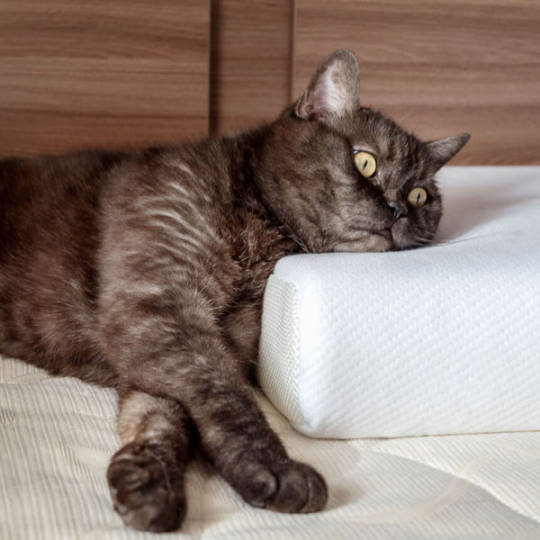
CREATING COMFORTABLE SPACES FOR SENIOR CATS
Ensuring comfortable sleeping arrangements is essential for the well-being of senior cats. Here are practical considerations to ensure their comfort:
Orthopedic Beds: Choose beds that offer adequate support to your cat's joints, such as memory foam or orthopedic cat beds, to alleviate pressure points.
Ideal Placement: Position the bed in a serene area, away from drafts or direct sunlight, providing a cozy and snug environment for your senior cat.
Warmth: During colder months, provide blankets or heated pads to keep your senior cat warm and comfortable while resting.
Size: Ensure the bed is spacious enough for your cat to stretch out comfortably and change positions easily, promoting restful sleep.
Elevated Options: Some senior cats may benefit from elevated beds, making it easier for them to access and providing additional support.
Cleanliness: Regularly clean the bed and bedding to maintain hygiene and prevent discomfort caused by dirt or allergens.
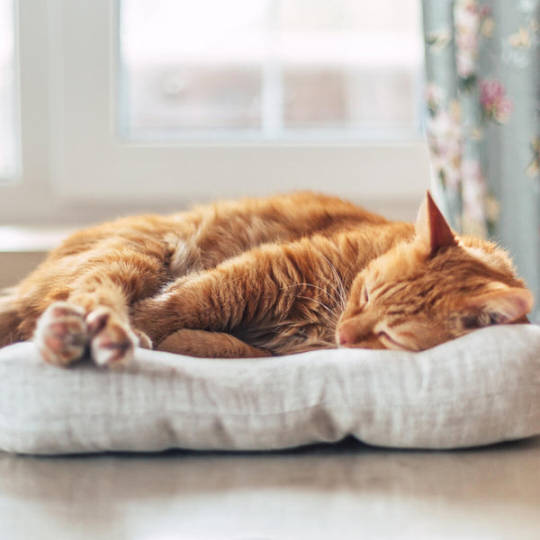
ADAPTING THE ENVIRONMENT FOR SENIOR CATS' MOBILITY
Adapting the environment to support the mobility of senior cats is crucial for their comfort and safety. Here are steps to consider:
Clear Spaces: Remove obstacles and tripping hazards to create a clear and clutter-free environment, facilitating easy movement for senior cats.
Non-Slip Surfaces: Use non-slip mats or rugs to provide better traction on slippery surfaces, ensuring senior cats can navigate without slipping or sliding.
Ramps or Steps: Install ramps or pet stairs to help senior cats access elevated areas like beds or sofas, making it easier for them to climb up and down without straining their joints.
Supportive Bedding: Provide supportive bedding or orthopedic mattresses to alleviate joint pressure and provide comfort and relief for senior cats.
Raised Food and Water Bowls: Use raised food and water bowls to prevent strain on your cat's neck and spine while they enjoy their meals.
By making these adjustments, senior cats can navigate their surroundings more comfortably and maintain their mobility.
Creating a supportive environment for senior cats enhances their quality of life and ensures they can enjoy their golden years to the fullest.
FREQUENTLY ASKED QUESTIONS ABOUT SENIOR CATS
1. HOW CAN I TELL IF MY CAT IS ENTERING ITS SENIOR YEARS?
Cats are generally considered seniors around the age of 11. However, the onset of senior status can vary based on factors like breed and overall health.
Look for signs such as reduced activity levels, changes in appetite, and alterations in grooming habits, which may indicate that your cat is transitioning into its senior years.
2. WHAT ARE THE COMMON PHYSICAL CHANGES IN SENIOR CATS?
Senior cats often experience physical changes such as reduced mobility, joint stiffness, weight fluctuations, dental issues, and changes in coat texture or color.
Keeping an eye out for these changes allows for timely intervention and management to maintain their comfort and well-being.
3. HOW CAN I ADDRESS BEHAVIORAL CHANGES IN MY SENIOR CAT?
Behavioral changes in senior cats may include increased anxiety, changes in sleep patterns, and alterations in social interactions.
Providing a calm and predictable environment, engaging in gentle play and interaction, and offering comfort and reassurance can help alleviate anxiety and support your senior cat's emotional well-being.
4. WHAT DIETARY CONSIDERATIONS ARE IMPORTANT FOR SENIOR CATS?
Senior cats may have specific dietary needs related to age-related changes in metabolism and digestion.
Consider feeding them a balanced diet formulated for senior cats, which may include nutrients like omega-3 fatty acids and antioxidants to support joint health and immune function.
Consult your veterinarian for personalized dietary recommendations based on your cat's health status and age.
5. HOW CAN I ENSURE MY SENIOR CAT'S ENVIRONMENT IS CONDUCIVE TO ITS NEEDS?
Adapting your senior cat's environment to its changing needs is essential for its comfort and well-being. Provide easy access to food, water, litter boxes, and cozy resting areas.
Consider adding ramps or steps to help them navigate elevated surfaces and ensure a safe and comfortable living space free of hazards or obstacles.
6. IS AN ORTHOPEDIC BED NECESSARY FOR CATS?
Orthopedic cat beds are frequently suggested for senior cats or those with arthritis or similar joint issues.
These beds can alleviate discomfort and enhance mobility. However, even younger and healthy cats can benefit from the additional support and comfort offered by an orthopedic cat bed.
7. ARE THERE SPECIFIC HEALTH ISSUES I SHOULD WATCH FOR IN MY SENIOR CAT?
Senior cats are prone to various health issues, including dental problems, arthritis, kidney disease, and sensory impairments.
Watch for signs such as changes in appetite, difficulty urinating or defecating, excessive thirst, or changes in behavior.
Regular veterinary check-ups and proactive management can help identify and address potential health concerns early on, maximizing your senior cat's quality of life.
#cat#cats#SeniorCats#SeniorCatCare#FelineWellness#CatHealth#ElderlyCats#PetComfort#SeniorPetCare#CatMobility#SeniorCatLife#CatEnrichment#ElderlyCatHealth
0 notes
Link
🐾 As a cat owner, you want to ensure that your feline friend stays healthy and happy. One of the best ways to do this is by seeking expert care from a qualified veterinarian. 🐾 However, not all vets are created equal when it comes to feline care. It's important to find a vet who specializes in cats and understands their unique needs and behaviors. 🐾 In this article, we'll share some expert cat vet care tips to help you keep your furry friend in tip-top shape. From regular check-ups to preventative care, we'll cover everything you need to know to keep your cat healthy and happy for years to come.1. Understanding Your Cat's Health Needs: A Guide to Expert Cat Vet CareAs a cat owner, it's essential to understand your feline's health needs. Regular vet check-ups, vaccinations, and a balanced diet are crucial for their well-being. Common health issues include dental problems, obesity, and urinary tract infections. Early detection is key to successful treatment. Regular vet check-ups Vaccinations Balanced diet Dental care Obesity prevention Urinary tract infection prevention It's important to know the signs of illness in cats, such as changes in behavior, appetite, or litter box habits. Don't hesitate to contact your vet if you notice anything unusual. Preventative care is the best way to keep your cat healthy. Regular exercise, mental stimulation, and parasite prevention are all part of a healthy lifestyle. Remember, your cat's health is in your hands. By providing expert vet care, you can ensure a long and happy life for your feline friend. 🐾2. The Importance of Regular Check-Ups: Keeping Your Feline Friend HealthyRegular check-ups are crucial for maintaining your cat's health. 🐾 Preventative care can detect issues early and save you money in the long run. 💰 Annual exams are recommended for adult cats. Semi-annual exams are recommended for senior cats. During check-ups, your vet will examine your cat's eyes, ears, mouth, heart, lungs, and abdomen. 🩺 They may also recommend blood work, urine tests, and other diagnostic tests to catch any underlying health issues. 🔍 Early detection of diseases like diabetes and kidney disease can lead to better treatment outcomes. Regular check-ups can also help prevent dental disease and obesity. Don't wait until your cat is sick to bring them to the vet. Regular check-ups can keep your feline friend healthy and happy. 😻3. Common Health Concerns in Cats: How to Spot and Treat Them 🐱 Cats are prone to certain health issues. Here are some common ones and how to identify and treat them. 🤒 Upper respiratory infections are prevalent in cats. Symptoms include sneezing, coughing, and discharge from the nose and eyes. Treatment involves antibiotics and supportive care. 🐛 Parasites such as fleas, ticks, and worms can cause health problems. Look for signs like scratching, hair loss, and vomiting. Treatment includes medication and prevention measures. 🤢 Vomiting and diarrhea can be caused by various factors, including diet changes and infections. Watch for dehydration and seek veterinary care if symptoms persist. 👀 Eye problems like conjunctivitis and cataracts can affect cats. Signs include redness, discharge, and cloudiness. Treatment may involve medication or surgery. 🚫 Obesity is a growing concern in cats. Overweight cats are at risk for health issues like diabetes and joint problems. Manage weight through diet and exercise. 👂 Ear infections are common in cats, especially those with long ears. Look for signs like shaking of the head and discharge. Treatment involves cleaning and medication. 👅 Dental problems like gingivitis and tooth decay can cause pain and discomfort. Signs include bad breath and difficulty eating. Treatment involves dental cleaning and extractions. 🏥 Regular veterinary check-ups and preventive care can help identify and address health concerns early on. Keep your cat healthy and happy!4. Nutrition and Diet: Feeding Your Cat for Optimal Health and Wellness🐱 Nutrition and Diet: Feeding Your Cat for Optimal Health and Wellness Cats are obligate carnivores, meaning they need meat in their diet to thrive. Feed them a high-quality, protein-rich diet to maintain muscle mass and support organ function. Choose a diet that meets AAFCO standards for complete and balanced nutrition. Avoid feeding your cat table scraps, as they can cause digestive upset and nutrient imbalances. Offer fresh, clean water at all times to prevent dehydration and promote kidney health. Obesity is a common problem in cats. Help your cat maintain a healthy weight by measuring food portions and avoiding free-feeding. Consult with your veterinarian to determine the appropriate amount of food for your cat's age, weight, and activity level. Consider feeding your cat smaller, more frequent meals throughout the day to prevent overeating. Incorporate exercise and playtime into your cat's daily routine to promote weight loss and overall health. Certain foods can be harmful to cats and should be avoided. Never feed your cat chocolate, caffeine, alcohol, onions, garlic, grapes, raisins, or avocado. Limit your cat's intake of dairy products, as many cats are lactose intolerant. Consult with your veterinarian before feeding your cat any new foods or supplements. 🐾 Takeaway: A nutritious, balanced diet is essential for your cat's health and well-being. Consult with your veterinarian to determine the best diet and feeding routine for your feline friend.5. Grooming and Hygiene: Keeping Your Cat Clean and ComfortableProper grooming and hygiene are essential for your cat's health and happiness. Here are some tips: Brush your cat's fur regularly to prevent matting and hairballs. Trim your cat's nails every few weeks to prevent them from getting too long. Clean your cat's ears with a cotton ball and ear cleaner solution. Brush your cat's teeth daily or use dental treats to prevent dental problems. Bathe your cat occasionally, using a cat-specific shampoo. Regular grooming and hygiene will keep your cat comfortable and healthy. Don't forget to give your cat lots of love and attention too! 😻6. Behavioral Issues in Cats: Tips for Addressing and Preventing ProblemsUnderstanding your cat's behavior is crucial to prevent and address issues. Here are some tips: Provide enough litter boxes and clean them regularly. Offer scratching posts and toys to prevent destructive behavior. Establish a routine for feeding and playtime. Use positive reinforcement and avoid punishment. Aggression can be a problem, but there are ways to manage it: Identify triggers and avoid them. Redirect your cat's attention with toys or treats. Consult with a veterinarian to rule out underlying medical issues. Consider behavior modification therapy. Separation anxiety can cause destructive behavior. Try these tips: Gradually increase the time you spend away from your cat. Provide a comfortable and safe space for your cat. Leave familiar items, like blankets or toys, with your cat. Consult with a veterinarian for medication options. Preventing behavioral issues is easier than addressing them. Here's how: Provide mental and physical stimulation daily. Train your cat to tolerate grooming and handling. Introduce new people and pets slowly. Spay or neuter your cat to reduce territorial behavior. Remember, every cat is unique. If you're struggling with behavior issues, seek advice from a veterinarian or animal behaviorist. 🐾7. Emergency Care for Cats: What to Do When Your Feline Friend Needs HelpWhen your cat needs emergency care, it's important to act quickly and calmly. Here's what you need to know: Recognize the signs of an emergency, such as difficulty breathing, seizures, or severe bleeding. Call your veterinarian or an emergency clinic immediately. If your cat is unconscious, check for breathing and perform CPR if necessary. Do not attempt to give your cat any medication without consulting a veterinarian first. Transport your cat to the veterinarian or emergency clinic as quickly and safely as possible. If your cat is bleeding, apply pressure to the wound with a clean cloth or bandage. Keep your cat warm and calm during transport. Be prepared for emergencies by creating a first aid kit for your cat: Include items such as gauze, bandages, hydrogen peroxide, and a thermometer. Keep the kit in a easily accessible location. Regularly check the kit to ensure that all items are up-to-date and in good condition. Remember, in an emergency, time is of the essence. Stay calm, act quickly, and seek professional help. 🚑🐱💉🩹🆘 In conclusion, providing expert cat vet care is crucial for your feline friend's well-being. Regular check-ups, vaccinations, and preventative care can help prevent illnesses and ensure a long, healthy life 🐾. Additionally, keeping up with grooming, dental care, and a balanced diet can also contribute to your cat's overall health. Remember to always consult with your veterinarian for any concerns or questions you may have. With proper care and attention, your cat can live a happy and healthy life 🐱. Don't forget to give them plenty of love and playtime too! Thank you for reading our expert cat vet care tips, we hope they were helpful. https://emergencyvet.uk/expert-cat-vet-care-tips/?_unique_id=646db01dbc627
#Uncategorised#cathealthcare#felinebehaviorproblems#felinenutrition#preventivemedicineforcats#seniorcatcare#aiomatic_0
0 notes
Text
4 Things You Need to Know About Senior Cat Care
Could it be said that you are a glad proprietor of a senior feline? Do you have any idea about how to take appropriate consideration of your shaggy companion as they age? As felines become older, they become inclined to a few medical issues, which require exceptional consideration and care. In this article, we will examine the four things you want to realize about senior feline consideration.
#senior cat care#cat health#cat care tips#cat lovers#caring for your cat#cat nutrition#cat exercises#pet care#cats#feline.#seniorcatcare#cathealth#catcaretips#catlovers#caringforyourcat#catnutrition#catexercises#petcare#feline
0 notes